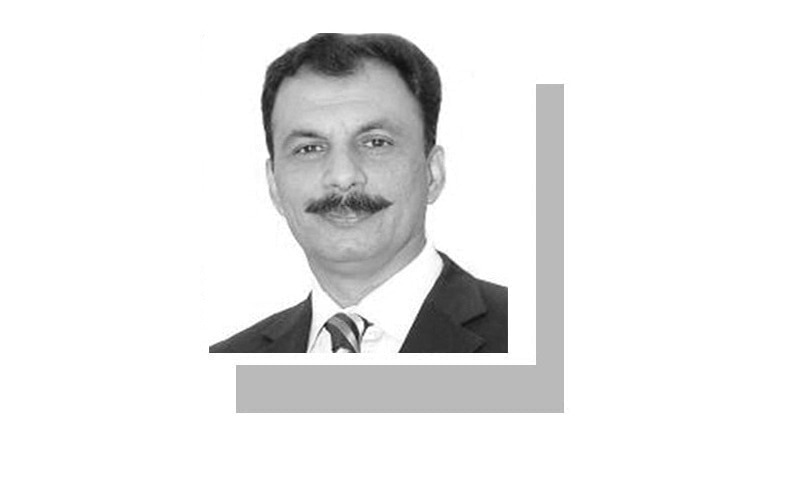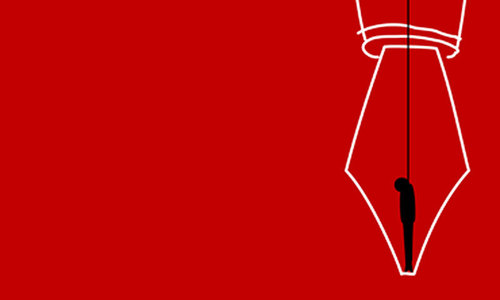CONFLICT is an essential component of news. South Asia’s history is a tale of conflicts that have grabbed global attention. Media attention has been focused on conflict since 1979, when the Soviet forces invaded Afghanistan; that has been to the detriment of peace journalism. Post-9/11, conflict reporting has become more attractive.
The Afghan conflict encouraged many Pakistani journalists to switch to conflict reporting. However, untrained conflict reporters can do much damage. Sometimes, unaware of the sensitivities of the situation, they unintentionally intrude into the national security domain. Novices can find it difficult to maintain a balance between protecting their life and gaining access to information. They may fail to expose the hidden dynamics behind a conflict.
Although journalists have paid a heavy price during the ongoing militancy, with many even losing their lives, ‘peace reporting’ is yet to become a priority. ‘Peace journalism’, a term pioneered by Norwegian sociologist Johan Galtung, is also known as ‘constructive journalism’ or ‘solutions journalism’. Peace journalism advocates peace and amplifies its dividends. Peace journalists look into issues such as psychological consequences and the cost of conflict, the suffering of affected communities, as well as perpetrators’ grievances.
Sometimes conflict reporting is based on the idea that human nature is evil. Conflict reporting can be positive if structured within the peace journalism structure — ie, we understand that human nature is good, but certain conditions can force it into making problematic choices, and we keep an eye on those factors.
Conflict reporting from a peace journalism perspective means not simply reporting conflicts, but rather looking for reasons why they arise, what can be done to mitigate their effects, and what are the meeting points between disagreements.
Peace journalism amplifies peace dividends.
Conflicts may be good or bad. Violent conflicts interrupt democratic processes and can destroy the fabric of society. Good conflicts help society grow. Understanding the conflict allows a reporter to not only cover it but also provide a solution; but, in our case, journalism appears averse to ‘solution journalism’.
A journalist’s main responsibility is to seek the truth. Ideally, conflict reporters should be aware of the relevant history, the constitution, international treaties, and humanitarian law and administrative and law-enforcement structures. Without such knowledge, it is difficult to correctly report on the situation, as conflicts have much to do with legal aspects of governance.
Due to lack of professional competence and the opaque nature of national interests in conflict zones, reporters may shuttle between state and non-state actors. The state and media organisations must jointly develop an understanding of national interests that will prevent journalists from crossing red lines.
If parties to a conflict are violent, it makes accessing information more difficult. In the absence of information, journalists speculate, which impacts objectivity. In such situations, when they are pressed for time, journalists are dependent on ‘statement journalism’. Reporters should be trained on what precautions to adopt while dealing with violent non-state actors and desist from becoming too closely linked with a particular extremist group or a leader.
Journalists covering conflicts must know the value of language. They can unthinkingly use emotive words like ‘genocide’, ‘tragedy’, ‘assassination’ and ‘massacre’ in their news stories. A peace journalist should avoid adjectives like ‘vicious’, ‘cruel’, ‘brutal’ and ‘barbaric’.
Conflict changes the very nature of media; it is no longer there to merely inform people and serve democracy but to serve the interests of the powerful as well. There is also a commercial side to conflict journalism. Post-9/11 in Pakistan, private TV news channels mushroomed out of the conflict, and most channels sided with the major powers.
Journalists are also considered peacemakers: one of their basic responsibilities is to promote an informed citizenry that can take ownership of peace initiatives. After extended conflicts, there is often no immediate ownership as people are unaware of the actual situation and may adopt an extreme position.
Universities need to incorporate conflict reporting and peace journalism into their syllabus and collaborate with press clubs and the media’s representative bodies. The situation warrants dialogue between media and state institutions where such issues can be identified and discussed, and a consensus arrived at.To ensure that the meaning and limitations of national security are well understood, a communication strategy should be developed in collaboration with media organisations.
The writer is author of Pakistan: In Between Extremism and Peace.
Twitter: @alibabakhel
Published in Dawn, April 7th, 2023














































Dear visitor, the comments section is undergoing an overhaul and will return soon.